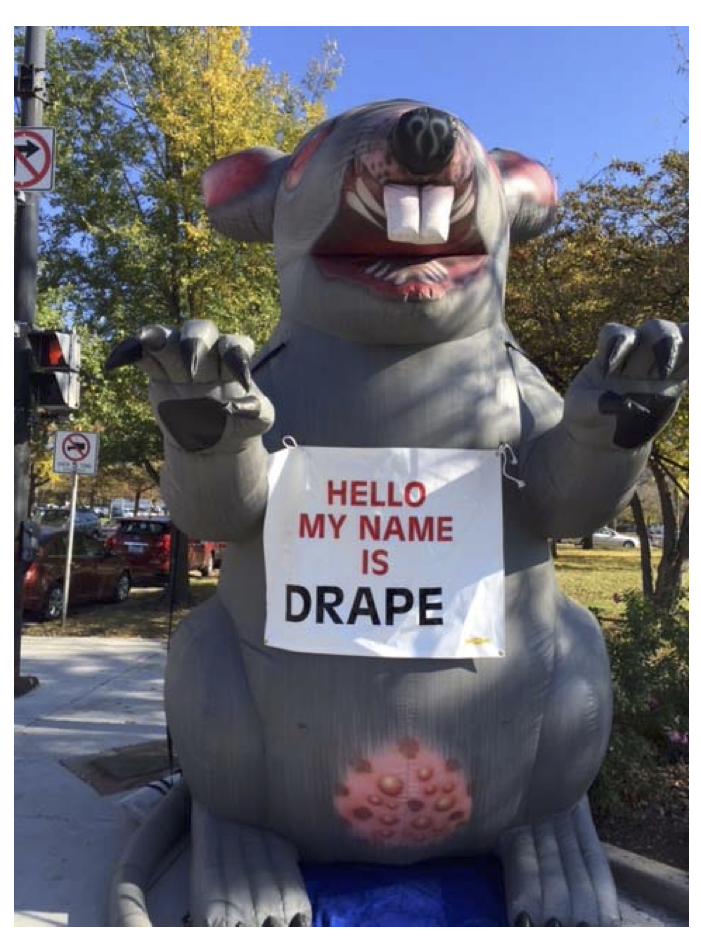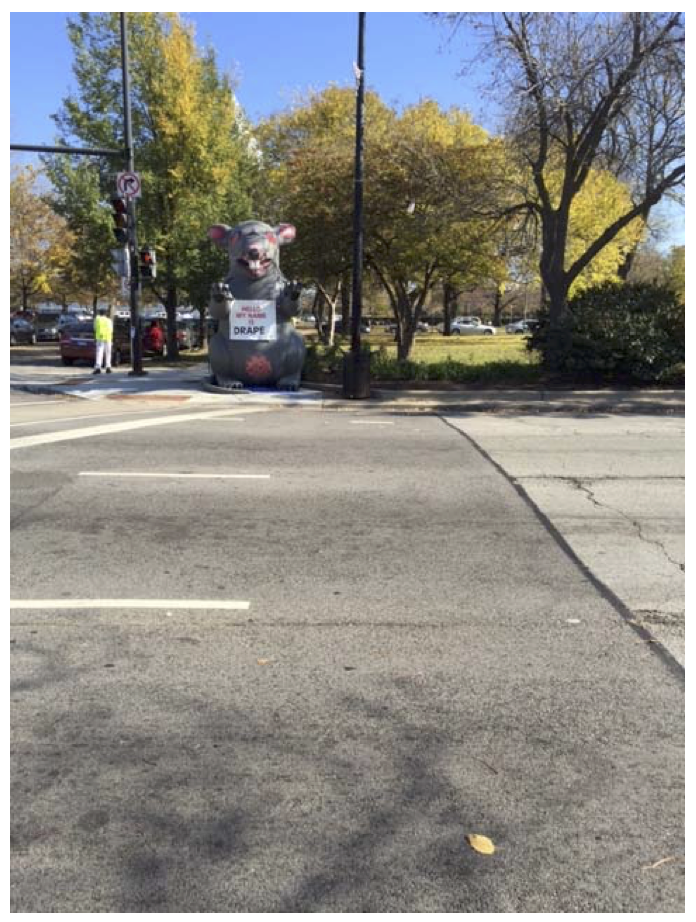On Friday, I was a guest on Houston Matters–a local public radio show–to discuss prayer in the public square. It was an extended discussion that touches on Establishment Clause jurisprudence over the last five decades.
Posner: “I’ll scandalize some readers, who think it improper for a judge to stray outside the official trial record…”
August 19th, 2016The Seventh Circuit continues to troll everyone who thinks appellate judges should stick to the record. Construction and General Labor v. Town of Grand Chute considers a local ordinance that restricts the placement of one inflatable rats, that unions use to shame employers. Judge Easterbrook wrote the majority opinion:
This case is about rats. Giant, inflatable rats, which unions use to demonstrate their unhappiness with employers that do not pay union‐scale wages. Cats too—inflatable fat cats, wearing business suits and pinkie rings, strangling workers.
Judge Posner’s concurring opinion, to demonstrate that the rats are not nuisances, explains that he often passes a similar rat on his commute from Hyde Park.
I’ll scandalize some readers, who think it improper for a judge to stray outside the official trial record, by sharing with them my experience with a roadside union rat. I some‐ times drive to work on a major divided highway called Mar‐ tin Luther King Drive, which runs north from Hyde Park, where I live, south of downtown Chicago, to downtown. As one nears the downtown on MLK Drive one sees (or rather saw, because during the long gestation of this case the rat— alas!—was removed, whether because the labor dispute be‐ tween union and employer was resolved or for some other reason), on the east side of the street, a large inflated rubber rat named Drape (short for Draper and Kramer, the employ‐ er with whom the union that put up that rat was fighting). Every time I drove past the rat I glanced at it, as it was the only noteworthy sight on my route. This glance never caused me to swerve, crash, crouch in my seat, avert my eyes, hit a pedestrian, or cause other mayhem. Nor did I ever observe an accident, even a swerve, in the vicinity of the rat. I saw no driver, or pedestrian, upon glimpsing the rat flee in terror. And yet this rat, like its Grand Chute cousin, was close to a major street—in fact much closer than the Grand Chute rat was to a major street; for while the Grand Chute rat was 70 feet from the highway, my Chicago rat was only about three feet from MLK Drive.
He even took pictures (hopefully not while driving):
I took a close‐up photo of the rat, and another photo of it from across the street. Here are the two photos:


Posner concludes:
I can’t imagine that any driver seeing Drape either close up or from across the street would have been distracted to the point of endangerment.